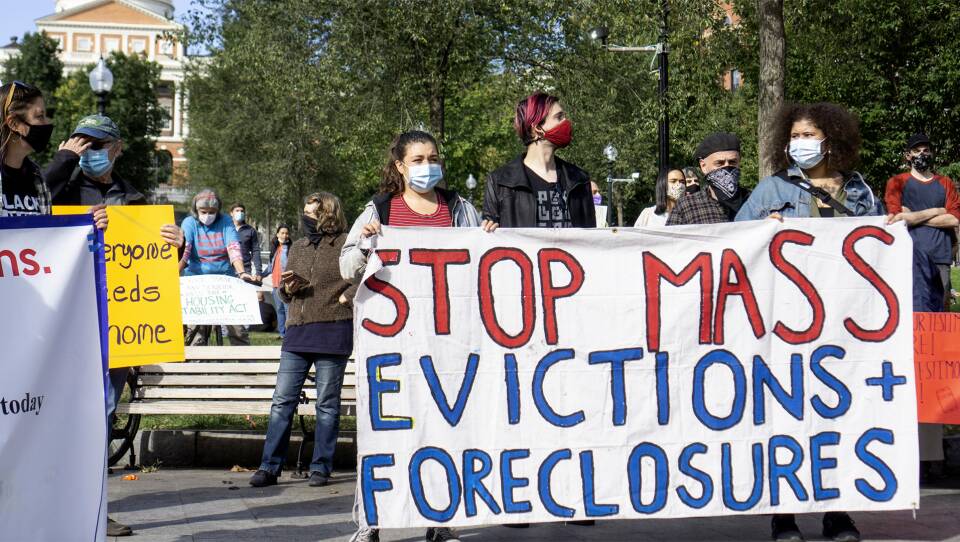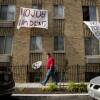With Massachusetts’ statewide eviction moratorium set to expire in less than a week, about 100 housing advocates rallied on the Boston Common Sunday as a call to action ahead of the deadline.
The group, an amalgam of members from multiple tenants’ rights organizations, called for the passage of a bill currently before the legislature that would extend the eviction moratorium for one year after the governor lifts the ongoing emergency declaration. It would also set up a fund to help with missed rent payments.
Gov. Charlie Baker signed the current eviction moratorium, which expires on Saturday, into law in April. He extended the measure's protections in July, but has signaled that he now prefers a ban alternative.
Baker has compared prolonging the eviction ban to deepening the financial hole both tenants and landlords are facing as they struggle to come up with payments, instead indicating a preference for a pandemic evictions solution through the judiciary.
Advocates who gathered Sunday objected.
“A lot of folks that we know facing eviction, they don’t even go to court, they just move,” said Ronel Remy, an organizer with City Life/Vida Urbana, a Boston-based nonprofit that focuses on affordable housing.
Remy, 53, said he has faced eviction as a Massachusetts renter multiple times, but in each instance, he elected to move rather than suffer the embarrassment that would come from trying to fight the eviction publicly.
“There’s so much shame and fear associated with that because you don’t want the people next to you to know that you cannot pay your bills,” Remy said.
Carolyn Lomax, a live-in landlord in Dorchester who supports the bill to extend the eviction ban, said expecting low-income renters to come up with payments during the pandemic is unrealistic, pointing to widespread business closures and the state's high unemployment rate.
“There [is] no way in the world the governor can say to me, [or] to my tenants when we lift that moratorium, we are expecting to have 100 percent of their rent,” said Lomax, who rallied with the housing advocate groups.
Lomax, who said she has been a landlord for almost two decades, said some of her current tenants have been struggling to make full rent payments. She asks them to pay what they can, when they can.
“My tenants are affected by COVID. I can’t penalize them for something they have no control over,” she said. “I’m going to treat my tenants how I want to be treated by my bank. I’m not going to judge them.”
Saturday's approaching moratorium deadline has been spurring both housing advocates and legislators to action. Earlier this month, lawmakers on the Joint Committee on Housing advanced a bill that would block foreclosures for non-payment of mortgage for a year and prioritize payments to small landlords.
Rep. Mike Connolly, one of the bill's sponsors, characterized it as an added layer of assurance to the current federal evictions ban, which expires at the end of 2020. The nation-wide ban, implemented by the Centers for Disease Control and Prevention last month, has had mixed success at keeping tenants in their homes to prevent the spread of COVID-19.
“It’s very uncertain,” said Connolly, pointing to multiple legal challenges to the CDC’s order. Connolly argued that state lawmakers should not rely on the tenuous enforceability of the CDC order, or wait for Baker to announce a legal counsel program without lawmakers' input.
“We can’t tolerate our most vulnerable constituents being displaced in a pandemic headed into winter,” he said, adding that he has asked the Baker administration to extend the moratorium again.
As of Sunday, no formal House sessions wherein lawmakers could consider pending bills are scheduled for the week.
Correction: A previous version of this story misspelled Ronel Remy's surname.









